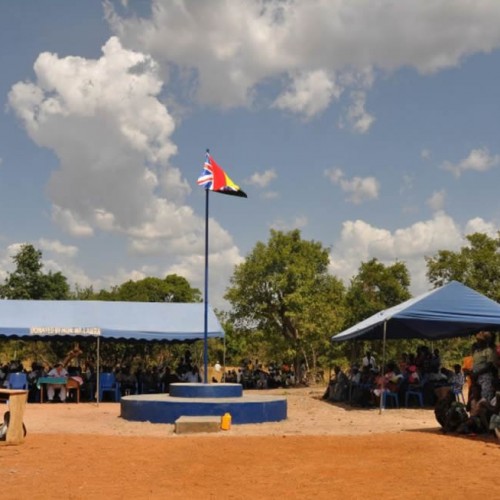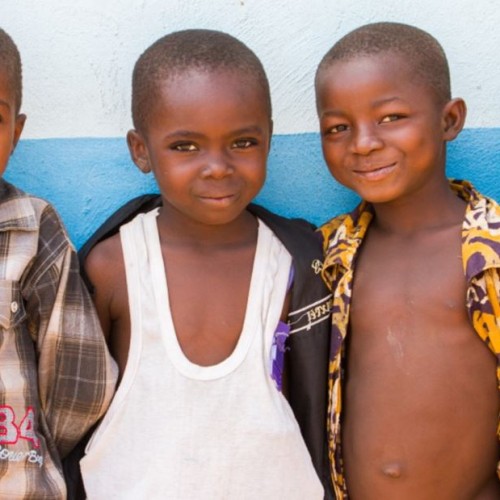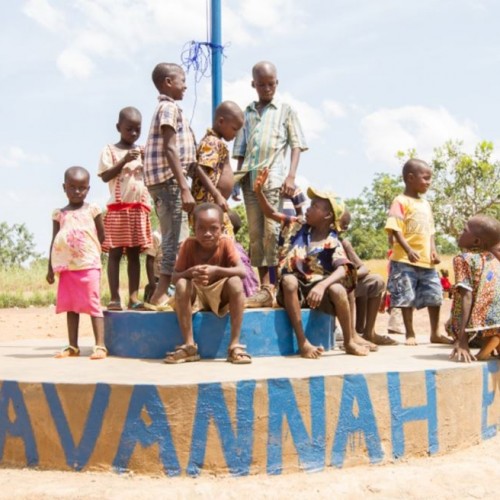Welcome to the online version of our Spring 2015 Newsletter. In this newsletter:
- Visit to Ghana
- Two new schools
- Photography
- Building work
- Launch of an eReader pilot scheme
- Marching
- Examinations
- Savannah at ten
- With gratitude
Visit to Ghana
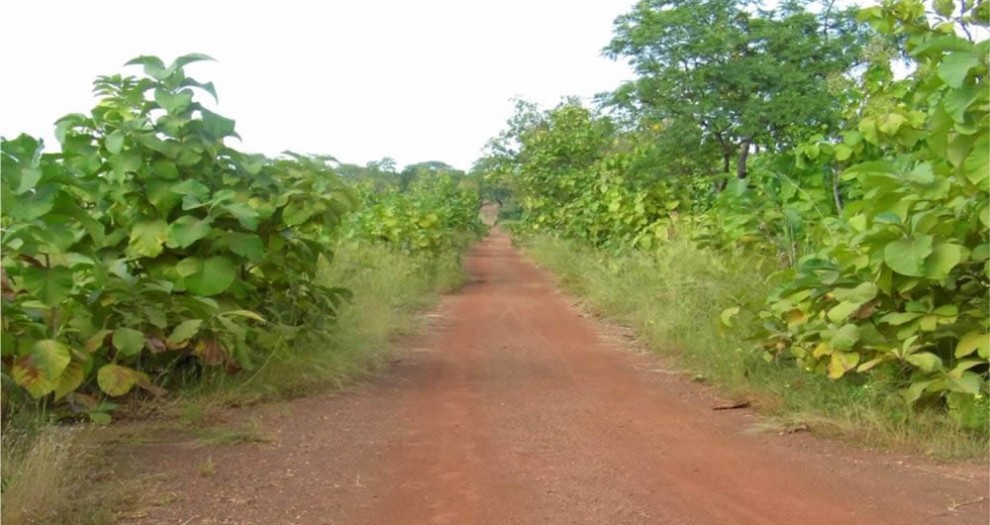
In October 2014, at the end of northern Ghana’s harvest season, a small delegation visited Ghana: Stephen and Tim Ramsbottom joined by photographer, James Lewis. As well as opening Mettoh School, the aim of the visit was to meet with local leaders – tribal and political – to visit each of the schools and to spend time with the Savannah staff and teachers.
It was a very full and memorable week. Indeed there were 26 different meetings or activities spread across 4 ½ days. It was particularly memorable for those seeing the area and the projects with fresh eyes: their first visit to Ghana…
“Having landed at a regional airport in the north of the country we travelled through this hard and beautiful landscape for many hours across miles of red road alongside long grass, past mud huts. Suddenly on the horizon we glimpsed a bright blue: one of the Savannah schools. It was a strangely emotional moment – and the start of a fascinating week.”
One striking thing for visitors is the extent of Savannah’s work now: in terms of the number of schools scattered across the villages around Lawra, and the number of teachers and pupils.
Although the Ghana Education Service are responsible for paying the teachers and monitoring the quality of education, we were interested to discuss the teaching and learning process in Ghana with the Savannah teachers. We witnessed some fascinating lessons: ranging from a maths lesson at Bagri, an English lesson on a subject not widely taught in British schools – anomalous finites – and hygiene & health.
The overall impression was of a good supply of teachers (either trained or in training), which is unusual for such remote rural schools. The resources available are, of course, still relatively limited, but they are improving with significant textbook purchases in recent years. Throughout all of the schools we noticed a focused, purposeful atmosphere. It is interesting when talking to the Ghana Education Service or to other local leaders that they all commend the standard and lively atmosphere at the Savannah schools.
Two new schools
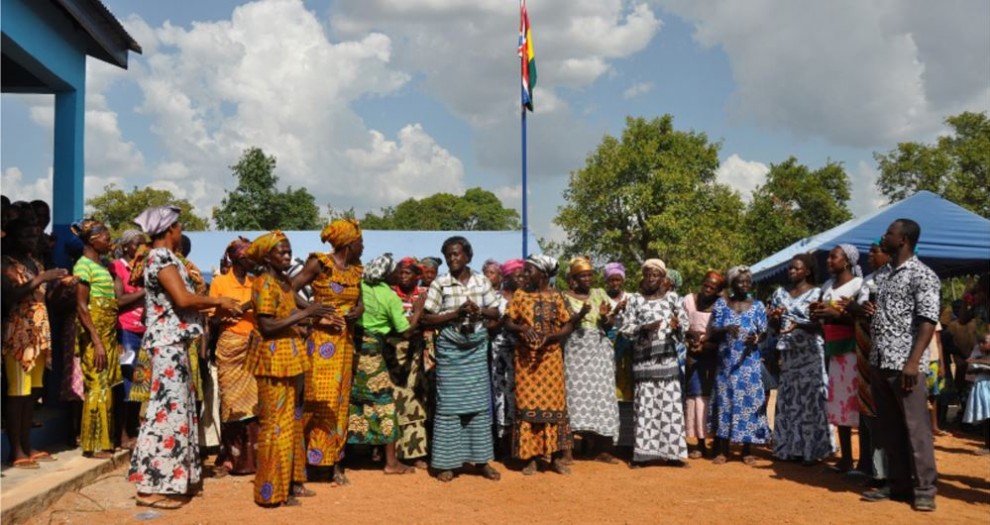
Savannah Education Trust now has schools in five villages, and there were two openings of new schools during October: Mettoh and Korh. Mettoh School was kindly funded by u-blox, a Swiss technology company (the employer of one of the trustees). Korh School was kindly funded by a significant legacy from the late Thomas Dadswell.
The Mettoh opening was attended by Stephen, Tim and James. In the absence of any Savannah Trustees, the opening in Korh was attended by James and Deborah Skelton who were visiting Ghana at the time. As the photograph shows, the openings are colourful, exciting and joyful occasions. For each community the new school in their midst is the fulfilment of their long held hopes: the first time in their long history when their children can receive an education.
Although the new schools look very similar to the existing schools, the team in Ghana have learned from past experience and introduced a number of new features including: disability access via ramps, improved water runoff and a new layout for the kitchen area. The assembly rooms have been designed so that they can be used as a chapel to hold services for those in the village who desire to worship on Sundays.
Photography
James Lewis, who joined the visit to Ghana, has recently started work as a professional photographer, and kindly took some photographs of the work. Many of the photos in this newsletter (and we hope in future publications) are his work. See http://tnpc.co.uk/pages/ghana-gallery for more of his photos from the trip.
Building work
If the Lord will, the immediate next phase of building is the consolidation of work started in the villages around Lawra over the past ten years. At Gberi and Pavuu there has been work on improving the access routes to the school, particularly during the wet season. In all other villages except Bagri, there is a need to build junior high schools (for pupils aged 11-14), although Mettoh and Korh will not need them for several years.
Launch of an eReader pilot scheme
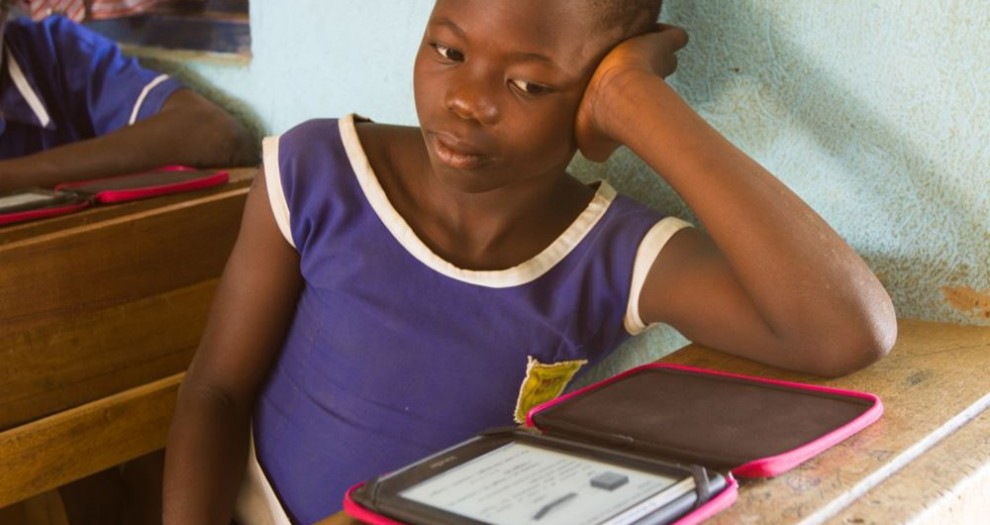
Ever since the schools started we have been struck by the contrasts between the resources available to schools in this country, and what is available to our teachers in northern Ghana.
In June 2014, we started an e-reader pilot scheme at our school in Pavuu, in partnership with u-blox (who provided the funding) and an international charity called Worldreader (www.worldreader.org). Each child has received an e-reader device with 100 books, including Ghanaian textbooks as well as carefully selected other books. The devices can be charged at the Savannah office in Lawra, and there is already evidence that these children are learning to read more quickly than those limited by a small number of battered textbooks.
The pilot scheme was launched in Summer 2014, with a ceremony including the District Director of Education as well as a representative of Worldreader. Following the ceremony, Joseph Botwey of Worldreader wrote,
“Worldreader in collaboration with the Savannah Education Trust has launched a new project in the most remote part of Ghana. The launch happened at a school situated in the heart of the Savannah, on the border of Ghana and Burkina Faso. The school has four teachers serving four classrooms with around 112 students in total. Infrastructure is bare but the surroundings are absolutely beautiful. To get to school, some students walk many miles a day. Most of the families are farmers and they live far away but on the day of the launch, they all showed up after a long morning’s work.
Before e-readers arrived, the school had an average of one textbook per class. The teachers used that textbook and students simply listened. Now the students have access to many books. The District Chief Executive even wrote and sang a song for the occasion! The entire experience was wonderful and the community was extremely welcoming and happy to be able to provide their children with a world of opportunities. This is a huge opportunity for people in the most book-deprived areas of Ghana. Thanks to all that made it possible.”
We were thankful for a donation specifically to cover the costs of this programme, and to be able to work with Worldreader who have subsidised the cost and provided devices that are suitable for this harsh environment. The effect of this modern technology in such an unlikely setting will be carefully monitored.
Marching
Marching is an important part of daily life at the schools. Every year the whole district gathers on Ghana’s Independence Day for a marching competition at the main square in Lawra. This year, Bagri Junior High School and Gberi Primary School achieved second and third place respectively.
Examinations
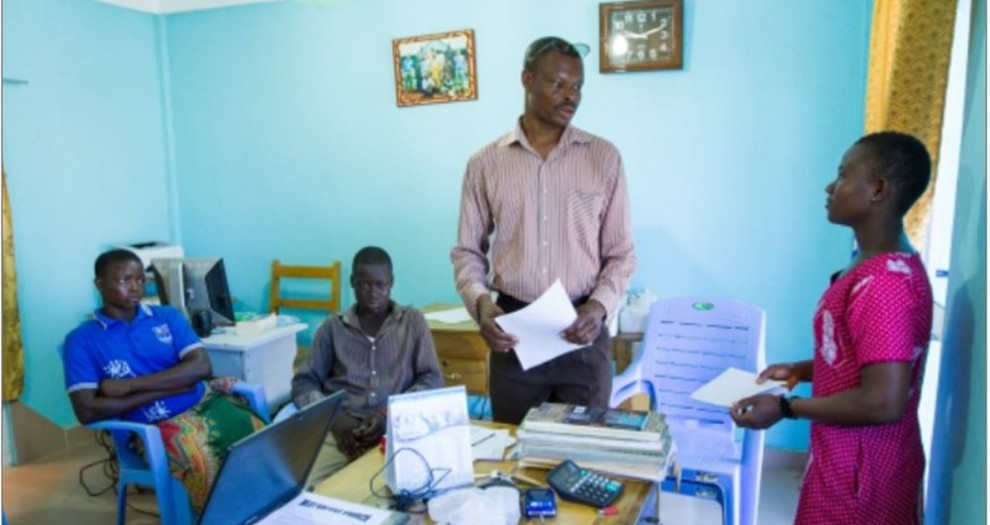
In the last newsletter we reported that the oldest pupils at our first school in Bagri were taking the national examination – the first cohort of our students to be entered for this examination. We are thankful to report that they performed very well, and that we have been able to provide a number of them with a scholarship to continue study up until the age of 18.
Students (see the photograph above) receiving these scholarships are studying at the Senior High School in Lawra and other main towns in the region.
All Senior High Schools are boarding but the cost of boarding (and food) are paid for by the government. The education is for three years. The cost is highest in the first year when registration fees have to be paid, as well as the purchase of uniform and resource materials. Cost in the first year is in the region of £150, dropping to some £50 in subsequent years. Often children go south to work after they finish in order to pay off these debts (this is, for example, what Savannah worker Alfred did when he was younger). Students are not given their results until they have paid their debt. As funds allow, we again hope to offer some scholarships this year.
Savannah at ten
During 2014 and 2015 the charity looks back over 10 years since the establishment (2004) and formal launch of Savannah (2005). We are thankful to God for all that has happened and also to our supporters for such consistent and generous support. During the summer, we hope to circulate a short account of the 10 years.
Ten Years in Numbers:
-
5 SCHOOLS
-
OVER 1000 PUPILS
-
45 TEACHERS
-
10 TEACHERS TRAINED
-
14 TEACHERS IN TRAINING
-
250,000 MEALS PER ANNUM
Savannah Office
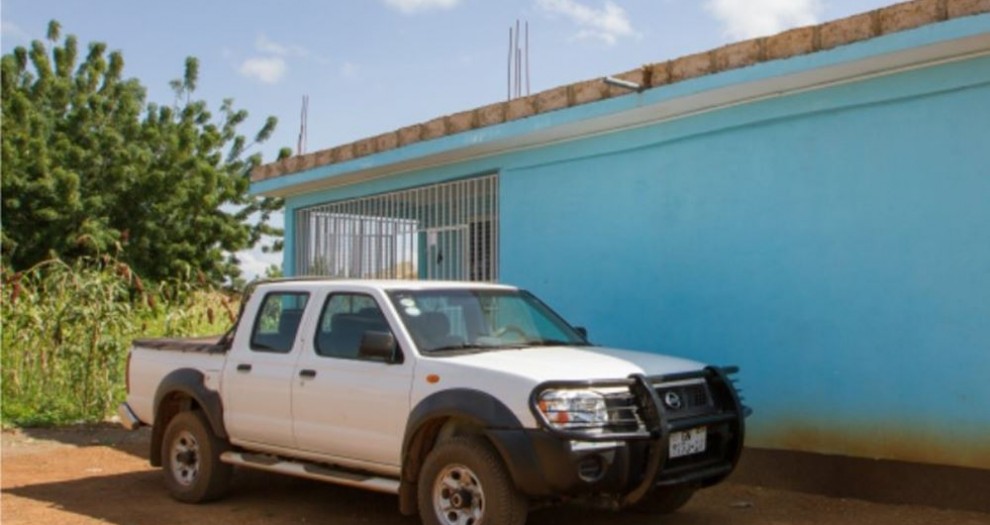
During 2014, Savannah established a small office in the market town of Lawra. The office is painted in the same colours as the school: striking two-tone blue. As well as being the administrative base for Savannah, where Pastor Charles and his team can work, it also serves as a resource centre for teachers at the Savannah schools. It therefore houses a photocopier, filing cabinets and the charging unit for the e-readers. The cost of hiring a property in this part of Ghana is strikingly cheap compared to the UK.
The Savannah Team: 10 Years On
It might be interesting to our supporters to introduce (or reintroduce) our dedicated team who work or volunteer for Savannah. (Supporters will recall that the teachers at our schools, who now number nearly 50 have their salaries paid by the government):
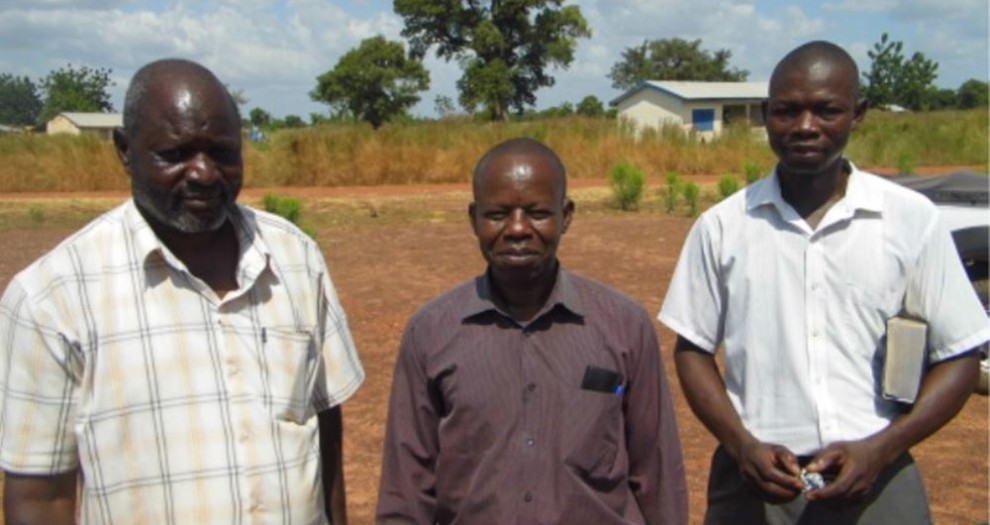
Pastor Charles (Programme Manager), who has led the work of Savannah in Ghana since it started a decade ago. A local pastor, and tribal leader among the Dagaare people of this part of Ghana.
Pastor James (Ghana trustee) A pastor in Accra, the southern capital of Ghana, but a native of this remote part of Ghana. He was the first link in the chain that led to the establishment of Savannah schools, taking the Trustees back in 2000 to the north of Ghana. He provides advice and counsel both to the Trustees in the UK, and the workers in the north of Ghana. At the recent opening of Mettoh School, Pastor James stood in the centre of the school courtyard and in the blazing heat preached a sermon on the text, “Ye must be born again.”
Alfred has been with Savannah since the very beginning, and he assists Pastor Charles in most of the activities, including providing a detailed breakdown of the finances each month. He is juggling a busy work life with studying for a distance learning course – as well as having deacon responsibilities at Lawra Baptist and oversight of the church at Pavuu. Seeing Alfred and Pastor Charles deal with our first scholarship students in the new office was a really good example of the administrative set up working well. Alfred’s wife, Lydia, recently qualified as a teacher (as well as a qualified cook) and is hoping to work at one of the Savannah schools.
Abed (short for Abednego) is Pastor Charles’ eldest son and is taking an increasingly significant role in the work. He teaches at Pavuu school and runs the e-reader programme in liaison with Worldreader.
Thomas was one of the earliest Savannah helpers in Ghana, who for many years voluntarily helped at our first school in Bagri. He continues to help with the practical aspects of Savannah’s work, including the feeding programme. He is a deacon of the church at Bagri, and preaches in the local churches around Lawra.
Adams, alongside Thomas, helps with the practical aspects of Savannah’s work.
Solomon As the Savannah foreman, Solomon has responsibility for the ongoing building work. But he is much more than a foreman. For example, he helped to organise and run the recent school openings. The fact that the two schools at Mettoh and Korh were built quickly and to a high standard owes much to his work.
Latitia is the secretary, providing support for the office and all of the schools (for example typing the examination papers). Her husband is a deacon at the Baptist chapel in Lawra.
Kulom is employed as a driver as and when he is needed, for either the tipper truck or one of the two Savannah pickups.
It is a great blessing for Savannah to have such a hard-working and loyal group of individuals.
With gratitude
We want to record our gratitude to Joe Sayers who has completed his three year term as a Trustee. We are grateful to him for all he has contributed.
A short newsletter can scarcely do justice to the range and scale of current activities at the schools. Amid all the activity and particularly as we look back over the decade, we are keen not to lose sight of the individual child. Without the Savannah schools many children would be in desperate situations. Nor do we lose sight of increasing responsibilities as the work increases. We remain very grateful to our supporters and, above all, we return thanks to God for sustaining the work.


